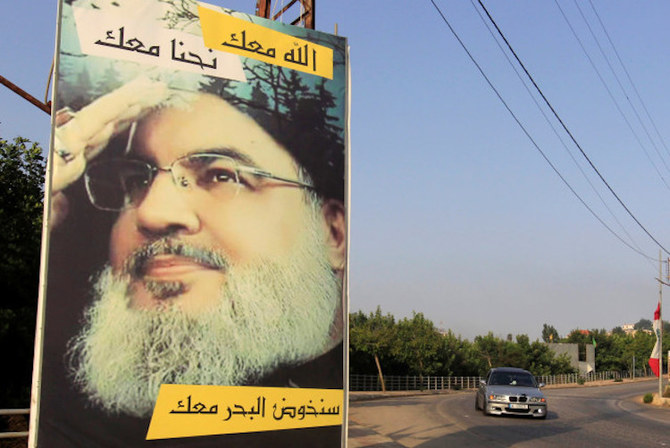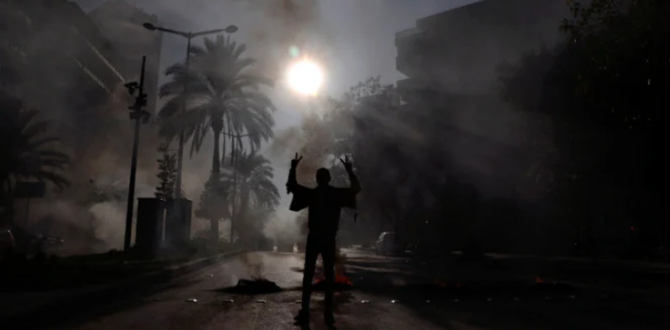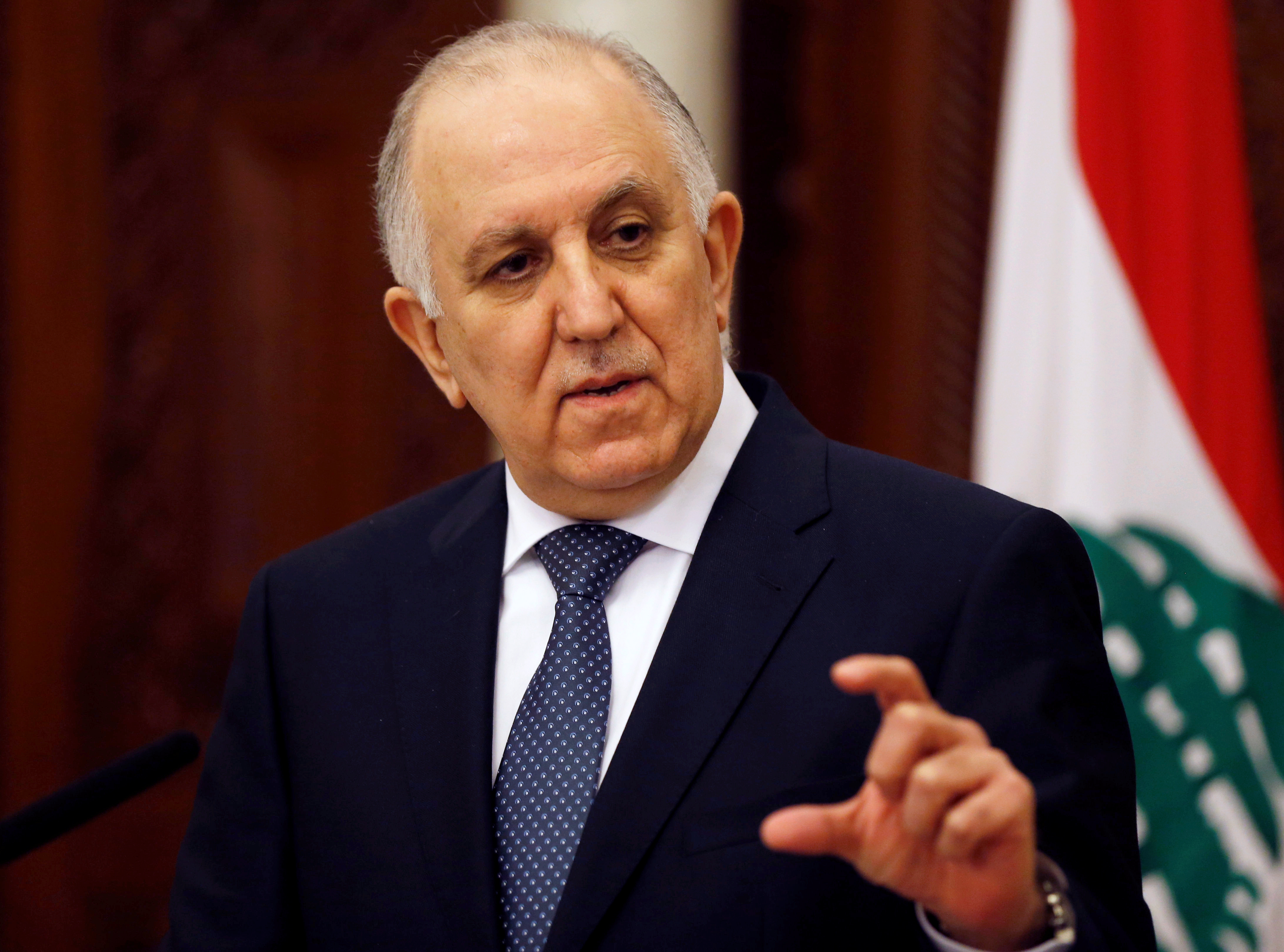
By CHRISTOPHER HAMILL-STEWART -- arabnews.com -- LONDON: Hezbollah has used its financial backers in Iran and its significant military arsenal to “permeate the Lebanese state,” according to a paper launched this week. The paper — authored by Lina Khatib, director of London-based think tank Chatham House’s Middle East and North Africa program, and launched at an online event on Thursday attended by Arab News — details how Hezbollah morphed from a resistance group against Israeli occupation to a hybrid power holding the Lebanese state in an ideological stranglehold. “Hezbollah has spread its influence throughout the Lebanese state, from the presidency of the republic to representative political institutions and the civil service, as well as Lebanon’s military and security institutions,” the paper said. “This influence is due to a number of factors: Hezbollah’s benefiting from a reliable external patron — Iran — unlike other parties in Lebanon; Hezbollah’s capacity in terms of organization, funding, physical resources and numbers of followers, which dwarfs that of other Lebanese parties.” Other means used by Hezbollah, the paper said, include the “weakness of the Lebanese state” and the existence of “a political system based on elite pacts.”
Khatib told event attendees that she urges analysts, particularly in the West, to take a “nuanced” approach to understanding the relationship between Lebanon and Hezbollah. “While Hezbollah is a contributing factor to the weakness of the Lebanese state, it’s also a product of the political system in Lebanon,” she said. “As long as the current political system in Lebanon continues to exist, it won’t be possible to reverse Hezbollah’s sway over the Lebanese state.” Khatib said the characterization of Hezbollah as a “state within a state” — popular in academic and policymaking circles — is inaccurate. This characterization “implies that Hezbollah is operating in a way that’s completely detached from the Lebanese state at large. Instead, what I argue is that Hezbollah permeates the state in Lebanon,” she added. “And when we say ‘the state,’ I’m not just talking about the state institutions, I’m also talking about the state as the space for the contestation of power in Lebanon. “This, I think, is vividly illustrated by how Hezbollah, unlike other groups in Lebanon ... has surveillance capacities. That means it’s monitoring not just what happens inside state institutions, but it’s monitoring its allies and its opponents in all kinds of arenas: Cultural, social, education, economic. This is something that gives it a huge tactical advantage.”

By Bassam Zacca -- arabnews.com -- BEIRUT: As Lebanon is increasingly plagued by power outages as a result of the fuel crisis in the country, the blackouts are affecting all sections of society. Status and official standing offer little protection, with politicians and foreign diplomats just as vulnerable as residents and business owners. On Friday morning, two of the nation’s main power plants stopped working completely because of a lack of fuel. This had a knock-on effect on water supplies, as pumping stations cannot operate without electricity or fuel for back-up generators. Since Thursday, power supplies have failed across Bekaa, Tripoli, Saida, Sour, Nabateyye, Baabda, Mount Lebanon and Beirut, with blackouts now affecting more than 90 percent of the country. One of the people feeling the effects was Takeshi Okubo, the Japanese ambassador to Lebanon, who wrote on social media about his fears for the effects of the electricity crisis on healthcare. “Electric power supply is down at my residence since early morning,” he said in a message posted on Twitter. “I was told no prospect of resumption of power supply. My thought is with all the hospitals and clinics.” Within a short space of time his tweet had received more than 747 likes, been retweeted 133 times and attracted more than 55 replies.
Firas Abiad, the CEO and manager of Rafik Hariri University Hospital (RHUH), recently said on Twitter that the main concern at most hospitals in Lebanon now is not the threat posed by the Delta variant of the coronavirus, nor shortages of medical supplies. “The major worry now is electricity, without which medical equipment cannot work,” he wrote. “Old generators cannot continue running nonstop. When they break down, lives will be at risk.” Abiad also sent a letter to government ministers about of the dire consequences of the fuel crisis and blackouts, warning that “backup generators won’t hold up for long amid this recurring and serious crisis.” He noted, for example, that the RHUH has already been forced to switch off air coolers in non-medical wards and some other departments.

BEIRUT, (Reuters) - Lebanese Interior minister Fahmi has denied a request by the judge probing the Beirut port explosion to question a top security official, a document seen by Reuters on Friday showed, as attempts to deliver justice over the catastrophe continue to flounder. Nearly a year after the Aug. 4 explosion, which killed more than 200 people, wounded thousands and devastated swathes of the capital, many Lebanese are furious that no senior officials have been held to account. The blast was caused by a massive quantity of explosive chemicals that had been stored unsafely at the port for years. The request from Judge Tarek Bitar to question Major General Abbas Ibrahim, head of the powerful General Security agency, was rejected by caretaker interior minister Mohamed Fahmy in a letter to the justice minister.
In a statement, Ibrahim said he was subject to the law like all Lebanese, but the probe should take place "far away from narrow political considerations". Bitar became the lead investigator into the blast after his predecessor, Judge Fadi Sawan, was removed in February following requests from two former ministers he had charged with negligence over the blast. Sawan had charged three ex-ministers and the outgoing prime minister Hassan Diab with negligence. But they refused to be questioned as suspects, accusing him of overstepping his powers. A parliamentary committee convened on Friday to study a request by Bitar for immunity to be lifted from former Finance Minister Ali Hassan Khalil, former Public Works Minister Ghazi Zeaiter and former Interior Minister Nohad Machnouk. After being charged, Diab said his conscience was clear, Khalil said he had no role in the blast, and Zeaiter called the charges "a blatant violation". Machnouk has also denied any responsibility.
بعد انتهاء حرب البارد ٢٠٠٧ اوفد رئيس احدى الدول الكبرى الصديقة ضابطاً كبيراً مستشاراً لديه ليطلب اليّ الموافقة له على القيام بجولة …
Khazen History


Historical Feature:
Churches and Monasteries of the Khazen family

St. Anthony of Padua Church in Ballouneh
Mar Abda Church in Bakaatit Kanaan
Saint Michael Church in Bkaatouta
Saint Therese Church in Qolayaat
Saint Simeon Stylites (مار سمعان العامودي) Church In Ajaltoun
Virgin Mary Church (سيدة المعونات) in Sheilé
Assumption of Mary Church in Ballouneh
1 - The sword of the Maronite Prince
2 - LES KHAZEN CONSULS DE FRANCE
3 - LES MARONITES & LES KHAZEN
4 - LES MAAN & LES KHAZEN
5 - ORIGINE DE LA FAMILLE
Population Movements to Keserwan - The Khazens and The Maans
ما جاء عن الثورة في المقاطعة الكسروانية
ثورة أهالي كسروان على المشايخ الخوازنة وأسبابها
Origins of the "Prince of Maronite" Title
Growing diversity: the Khazin sheiks and the clergy in the first decades of the 18th century
Historical Members:
Barbar Beik El Khazen [English]
Patriach Toubia Kaiss El Khazen(Biography & Life Part1 Part2) (Arabic)
Patriach Youssef Dargham El Khazen (Cont'd)
Cheikh Bishara Jafal El Khazen
Patriarch Youssef Raji El Khazen
The Martyrs Cheikh Philippe & Cheikh Farid El Khazen
Cheikh Nawfal El Khazen (Consul De France)
Cheikh Hossun El Khazen (Consul De France)
Cheikh Abou-Nawfal El Khazen (Consul De France)
Cheikh Francis Abee Nader & his son Yousef
Cheikh Abou-Kanso El Khazen (Consul De France)
Cheikh Abou Nader El Khazen
Cheikh Chafic El Khazen
Cheikh Keserwan El Khazen
Cheikh Serhal El Khazen [English]
Cheikh Rafiq El Khazen [English]
Cheikh Hanna El Khazen
Cheikha Arzi El Khazen
Marie El Khazen